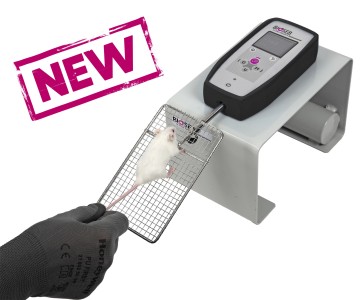Authors
K. L. Lambertsen, B. H. Clausen, A. A. Babcock, R. Gregersen, C. Fenger et al.
Lab
University of Southern Denmark, Medical Biotechnology Center and Departments of Biochemistry and Molecular Biology and Anatomy and Neurobiology, Odense, Denmark.
Journal
The Journal of Neuroscience
Abstract
Microglia and infiltrating leukocytes are considered major producers of tumor necrosis factor (TNF), which is a crucial player in cerebral ischemia and brain inflammation. We have identified a neuroprotective role for microglial-derived TNF in cerebral ischemia in mice. We show that cortical infarction and behavioral deficit are significantly exacerbated in TNF-knock-out (KO) mice compared with wild-type mice. By using in situ hybridization, immunohistochemistry, and green fluorescent protein bone marrow (BM)-chimeric mice, TNF was shown to be produced by microglia and infiltrating leukocytes. Additional analysis demonstrating that BM-chimeric TNF-KO mice grafted with wild-type BM cells developed larger infarcts than BM-chimeric wild-type mice grafted with TNF-KO BM cells provided evidence that the neuroprotective effect of TNF was attributable to microglial- not leukocyte-derived TNF. In addition, observation of increased infarction in TNF-p55 receptor (TNF-p55R)-KO mice compared with TNF-p75R and wild-type mice suggested that microglial-derived TNF exerts neuroprotective effects through TNF-p55R. We finally report that TNF deficiency is associated with reduced microglial population size and Toll-like receptor 2 expression in unmanipulated brain, which might also influence the neuronal response to injury. Our results identify microglia and microglial-derived TNF as playing a key role in determining the survival of endangered neurons in cerebral ischemia.
BIOSEB Instruments Used
Grip strength test (BIO-GS3)
Keywords/Topics
Ischemic Strokes; Cancer; Central Nervous System (CNS); Cross-disciplinary subjects
Source :

 Pain - Thermal Allodynia / Hyperalgesia
Pain - Thermal Allodynia / Hyperalgesia Pain - Spontaneous Pain - Postural Deficit
Pain - Spontaneous Pain - Postural Deficit Pain - Mechanical Allodynia / Hyperalgesia
Pain - Mechanical Allodynia / Hyperalgesia Learning/Memory - Attention - Addiction
Learning/Memory - Attention - Addiction Physiology & Respiratory Research
Physiology & Respiratory Research











![Dynamic Weight Bearing 2.0 – Postural Module [Add-on]](https://bioseb.com/733-home_default/dynamic-weight-bearing-20-add-on-postural-module.jpg)
























 Pain
Pain Central Nervous System (CNS)
Central Nervous System (CNS) Neurodegeneration
Neurodegeneration Sensory system
Sensory system Motor control
Motor control Mood Disorders
Mood Disorders Other disorders
Other disorders Muscular system
Muscular system Joints
Joints Metabolism
Metabolism Cross-disciplinary subjects
Cross-disciplinary subjects CONFERENCES & MEETINGS
CONFERENCES & MEETINGS 